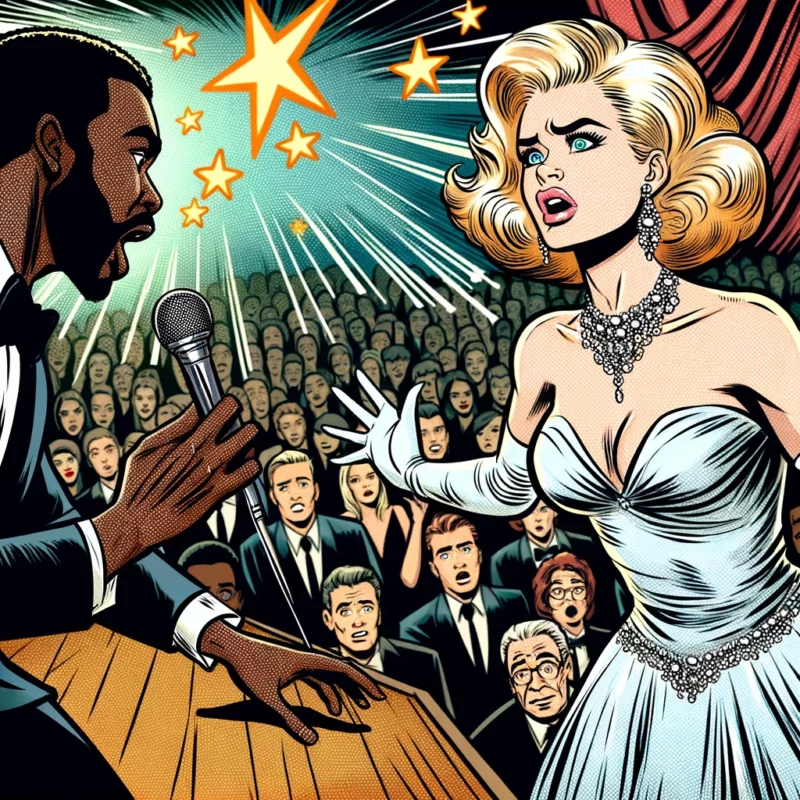In Suzanne Collins’ dystopian novel series, “The Hunger Games,” the character Caesar Flickerman plays a significant role in the annual televised event known as the Hunger Games. Caesar Flickerman is a charismatic and flamboyant television host who interviews the tributes before and after their participation in the deadly games. Throughout the series, Caesar’s character undergoes various developments and experiences that shape his role in the story.
Caesar Flickerman is introduced in the first book, “The Hunger Games,” as the host of the Capitol’s most popular television show, “The Caesar Flickerman Show.” He is known for his colorful attire, eccentric personality, and ability to captivate the audience with his interviews. Caesar’s role in the Hunger Games is to provide entertainment and create a sense of spectacle around the brutal event.
During the interviews, Caesar showcases his skills as a charismatic host, effortlessly engaging with the tributes and drawing out their stories. He uses his charm and wit to make the tributes feel comfortable and to elicit emotional responses from them. Caesar’s interviews are a crucial part of the Games, as they allow the Capitol citizens to connect with the tributes on a personal level and become emotionally invested in their stories.
One of the most memorable moments involving Caesar Flickerman occurs in the first book when he interviews Katniss Everdeen, the story’s protagonist, before the Games begin. Caesar’s interview with Katniss is a turning point in the story, as it reveals her defiance against the Capitol and her determination to survive. Caesar’s skillful questioning and genuine interest in Katniss’s life make the interview a powerful and emotional moment for both the characters and the readers.
As the series progresses, Caesar’s character evolves, and he becomes more than just a charismatic host. In the second book, “Catching Fire,” Caesar’s role expands as he becomes a symbol of the Capitol’s control and manipulation. The Games in this book are a special edition called the Quarter Quell, where previous victors are forced to compete against each other. Caesar’s interviews with the victors become a tool for the Capitol to manipulate public opinion and maintain control over the districts.
In “Catching Fire,” Caesar’s interviews take on a more political tone, as he is tasked with presenting the victors as loyal and grateful to the Capitol. However, Caesar’s genuine empathy for the tributes shines through, and he subtly challenges the Capitol’s narrative by highlighting the tributes’ struggles and sacrifices. This shift in Caesar’s character demonstrates his growing awareness of the injustices perpetuated by the Capitol and his willingness to use his platform to subtly resist their control.
In the final book, “Mockingjay,” Caesar Flickerman’s character undergoes another transformation. As the rebellion against the Capitol intensifies, Caesar becomes a symbol of hope and resistance. He uses his position as a television host to broadcast messages of rebellion and to expose the Capitol’s atrocities. Caesar’s interviews become a powerful tool for the rebels, as they allow them to communicate with the districts and inspire them to rise against the oppressive regime.
Caesar’s transformation from a mere entertainer to a symbol of resistance is a testament to his resilience and courage. Despite the risks involved, he uses his platform to challenge the Capitol’s narrative and to give a voice to the oppressed. Caesar’s character arc highlights the power of media and the potential for individuals to make a difference, even in the face of overwhelming adversity.
In conclusion, Caesar Flickerman’s character in “The Hunger Games” undergoes significant developments throughout the series. From a charismatic host to a symbol of resistance, Caesar’s journey reflects the larger themes of the books, such as the power of media, the manipulation of public opinion, and the importance of individual agency. Caesar’s interviews provide a window into the tributes’ lives and emotions, making him a crucial and memorable character in the series.







